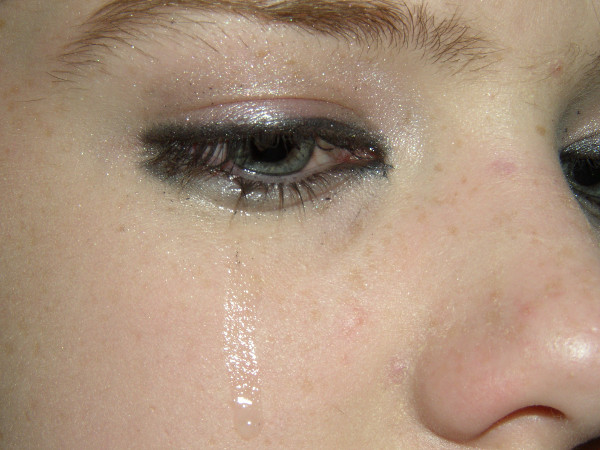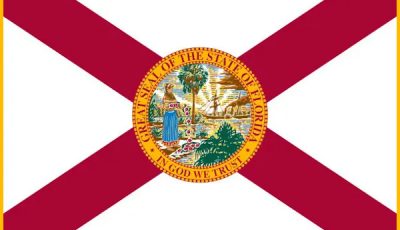Regulations Urgently Needed For New Porn Genre
 By Anthony Naderstein
By Anthony Naderstein
Special to YNOT
LOS ANGELES – In its ongoing quest to degrade, demean and cash in on every conceivable form of human intimacy, the deplorable profiteers of Big Porn have never shied away from exploiting a viewer’s visceral response to the depiction of all sorts of bodily fluids and functions, from ejaculation to menstruation, urination to defecation.
Unsatisfied with the returns on their investments in the field of “cumshots” — and no doubt in an effort to outfox reasonable attempts to regulate the dangers faced by their performers — pornographers have stooped to a new low, callously seeking to turn the heartfelt tears of everyday web users into cold, hard cash with which to line their sleazy pockets.
Laughably referring to herself as an “artist,” the trailblazer in this new area of emotive erotica is a Dora Moutot, who masquerades as a humble Tumblr account holder, but who is no doubt a mere front for major porn studios, possibly even one of Larry Flynt’s daughters in disguise.
A clever porn marketer, Moutot presents these gratuitous displays of weeping as a form of catharsis for the models featured in them, with nary a mention of her true motive: To profit from human suffering and the vulnerability of the weak and easily exploited — always the core strategy of the pornographic entrepreneur.
“When you record yourself crying, it takes away the pain from you,” Moutot claims. “It really does for me. It feels like suddenly you’re the spectator of your own sadness.”
I’m sure owners of sex-chat webcam companies rely on a similar rationale, mentally concocting some way in which their employees benefit from watching themselves jerk off, a way to twist things such that wanking for an audience of total strangers is really “affirming” and “empowering.” Such a rationale has nothing whatsoever to do with crassly exploiting naïve young people for profit.
The truth is, the danger of these crying porn videos isn’t just to the performers themselves, but to the entire public at large. The videos send the terrible message the only “hot” crying is unsafe crying. As we all know, however, sobbing without barrier protection is very risky — even if your partner has recently been tested for pink eye.
As deplorable as I find this new genre of “cry-camming” to be, I grudgingly accept the government is very unlikely to take action to ban it. As such, the next best thing is to craft regulations that will protect the models to the extent possible, while also — totally coincidentally, of course — making it nearly impossible for anyone to operate a profitable cry-cam network.
Accordingly, here are some of the regulations we at Californians for Arbitrary and Selective Paternalism will be lobbying legislators to introduce and encouraging Californians to support as a ballot measure at the earliest possible opportunity.
Eye condoms. One thing is perfectly clear from these crying videos: Absent some sort of barrier protection, tears are liable to go anywhere, from slowly gathering at the corner of the model’s mouth to gushing straight into their laps. From there, the possibility of contaminating third parties or dripping down beneath the lowest row of keys on their keyboard is simply too high.
Third-party enforcement action. Under the new regulations, any Californian who sees someone crying in a video on the internet without the use of proper protective measures may bring punitive civil action against the company that produced the video, all third parties that distribute the video and the performer(s) individually. Obviously, reasonable exceptions to this stipulation will be provided, including waivers for women who have just won beauty pageants, athletes who have just won or lost major championship games, and any former porn performers appearing at CASP press conferences in order to strongly denounce the unacceptable and unsafe practices of the adult industry.
Training requirements. In addition to any relevant educational measures already required by the state, pornographers filming crying videos will now be required to complete a comprehensive educational program covering safe handling and disposal of tears, both natural and those produced through use of Refresh.
Licensing. In addition to any relevant licensing and permit requirements, pornographers producing crying videos will be required to obtain a certificate confirming their completion of relevant training courses. In addition, they must prove they have acquired at least one high-test, CFO-free, non-GMO tear bucket for the collection and disposal of tears and other Potentially Salty Materials (PSM) commonly encountered or emitted on the set of crying-porn shoots.
Clearly, given the immense danger presented by the uncontained flow of human tears, there will be other requirements as well. Many of those are being negotiated and discussed behind closed doors as I write this — obviously without input from anyone in the adult entertainment industry, given the high potential for them to undermine the process and shape the outcome to their favor.
At CASP, our number-one goal in this campaign is to make California a safer place not just for crying porn stars, but also for everyday citizens who might be exposed to their tears or who could be influenced by the on-screen behavior of porn stars who engage in unsafe weeping.
For those currently producing crying porn, I want to be perfectly clear: CASP is in no way advocating for the censorship of your work. We’re merely trying to make it completely unprofitable and forcibly shape its content, message and impact to be precisely to our liking.
So, please — don’t stop making crying porn, and don’t see the government of California or us good folks at CASP as your enemy.
Instead see us for what we are: A benevolent group of concerned citizens whose only “agenda” is to try to make everyone else behave and live in ways we know to be best for them. That’s not fascism; it’s just being a good neighbor.
Anthony Naderstein is the founder and executive director of Californians for Arbitrary and Selective Paternalism (CASP), a group of community activists dedicated to making the lives of their fellow Californians safer and significantly less enjoyable since 1990.














